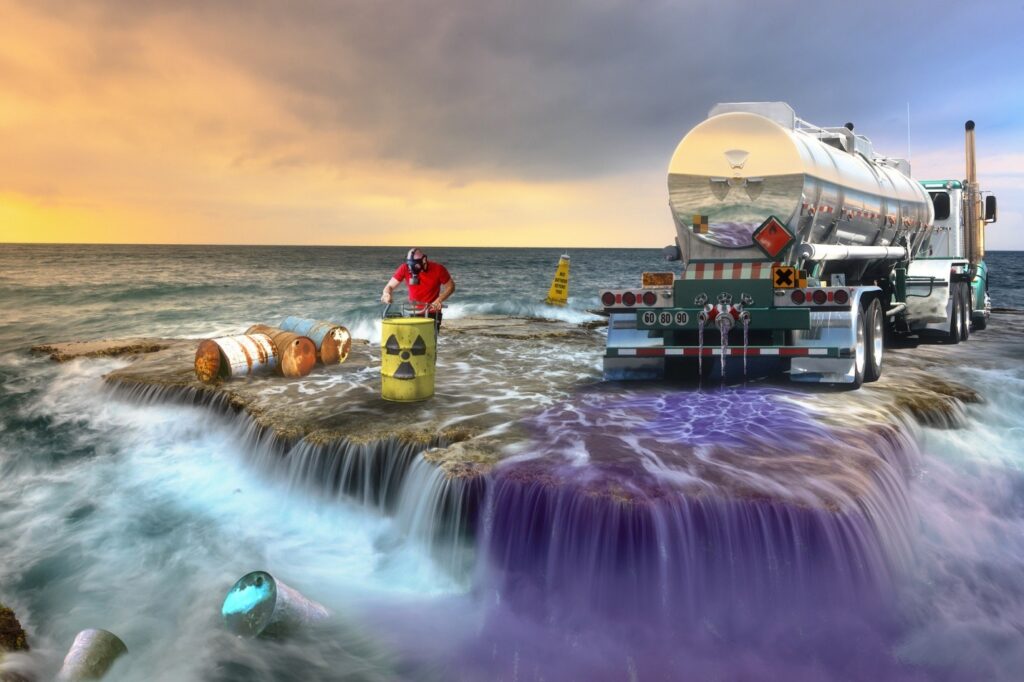5 Easy Facts About Reclaim Waste Described
5 Easy Facts About Reclaim Waste Described
Blog Article
Everything about Reclaim Waste
Table of ContentsSome Of Reclaim WasteReclaim Waste for BeginnersThe 5-Minute Rule for Reclaim WasteReclaim Waste Can Be Fun For AnyoneThe Only Guide for Reclaim Waste
Explore the kinds, incidents, and forms of fluid waste. Residential sewage waste refers to the waste and items from a household sewage-disposal tank. This kind of waste is produced by humans in houses, schools, and various other buildings. This only includes septic containers that have a drainpipe area. The correct monitoring and disposal of residential sewage waste call for fluid waste to be transferred to a sewage therapy plant where the appropriate techniques and devices are related to cleanse and deal with waste.
Commercial waste commonly consists of potential dangers, such as combustible materials or a blend of fluid and solid waste products, and needs an extra advanced and in-depth disposal procedure. The disposal of industrial waste normally entails the filtration of waste before transport to make certain safe and appropriate disposal. Hazardous waste is developed from byproducts and runoff of industrial procedures and manufacturing.
This kind of waste can not utilize the exact same sewer management transportation or processes as septic or business fluids. The hazardous waste administration process needs the assessment and screening of liquid waste before it undergoes the disposal procedure (liquid waste disposal). Runoff waste is the fluid waste that comes from drainage and excess stormwater in very booming locations or cities
Drainage waste can create contamination and flooding otherwise handled correctly. Discover more about sewer cleaning and waste monitoring. Ensuring correct waste monitoring can protect against catastrophes and decrease environmental harm. Both people in household setups and experts in commercial or manufacturing sectors can take advantage of understanding the processes and laws of fluid waste management.
Get This Report about Reclaim Waste
Call PROS Services today to find out about our waste monitoring and disposal solutions and the proper methods to care for the fluid waste you create.
(http://peterjackson.mee.nu/do_you_ever_have_a_dream#c2256)Do you recognize what occurs to your water when you disengage, purge the bathroom or drain pipes the cleaning machine? No? Well, it deserves understanding. This supposed 'wastewater' is not only a vital source but, after therapy, will be launched to our land, waterways or the sea. Used water from commodes, showers, baths, cooking area sinks, laundries and commercial processes is known as wastewater.

water made use of to cool machinery or tidy plant and equipment). Stormwater, a kind of wastewater, is runoff that streams from farming and metropolitan locations such as roofings, parks, yards, roads, paths and seamless gutters into stormwater drains, after rainfall. Stormwater moves without treatment straight to local creeks or rivers, at some point reaching the ocean.
A Biased View of Reclaim Waste
In Queensland, a lot of wastewater is treated at sewage treatment plants. Wastewater is moved from domestic or industrial sites through a system of sewers and pump stations, referred to as sewerage reticulation, to a sewage treatment plant. Local governments develop, preserve and run most sewer therapy plants. Operators are accredited under the Environmental Management Act 1994 to discharge cured wastewater at an appropriate environmental standard right into rivers.
The Department of Natural Resources recommends regional governments about handling, operating and keeping sewage systems and treatment plants. In unsewered areas, neighborhood governments might require householders to install private or family sewer treatment systems to deal with residential wastewater from commodes, cooking areas, washrooms and washings. The Department of Natural Resources authorizes using household systems when they are proven to be reliable.
In some brand-new subdivisions, therapy of some stormwater to eliminate litter, sand and crushed rock has actually begun using gross pollutant catches. Wastewater treatment occurs in 4 stages: Removes solid issue.
Wastewater then moves into huge storage tanks where solids resolve and are eliminated as sludge. Oil and scum are skimmed from the surface. Makes use of little living microorganisms referred to as micro-organisms to damage down and get rid of staying dissolved wastes and great particles. Micro-organisms and wastes are integrated in the sludge. Gets rid of nitrogen and phosphorus nutrients that can cause algal blossoms in our waterways and intimidate aquatic life.
Reclaim Waste Can Be Fun For Everyone
Nutrient removal is not offered at all sewer treatment plants since it calls for expensive specialist tools. Clear fluid effluent generated after therapy useful site may still include disease-causing micro-organisms - liquid waste disposal.

The majority of wastewater flows right into the sewerage system. Under the Act, local governments provide approvals and permits for eco relevant activities (ERAs) entailing wastewater releases that could have a local influence.
4 Simple Techniques For Reclaim Waste
Or else, examples are taken for lab evaluation. Typically several tests are needed to establish the degrees of each of the various contaminants such as oils, heavy steels and chemicals in water. Monitoring supplies valid info concerning water top quality and can confirm that licence conditions are being satisfied. The info gotten via surveillance provides the basis for making water quality decisions.
Report this page